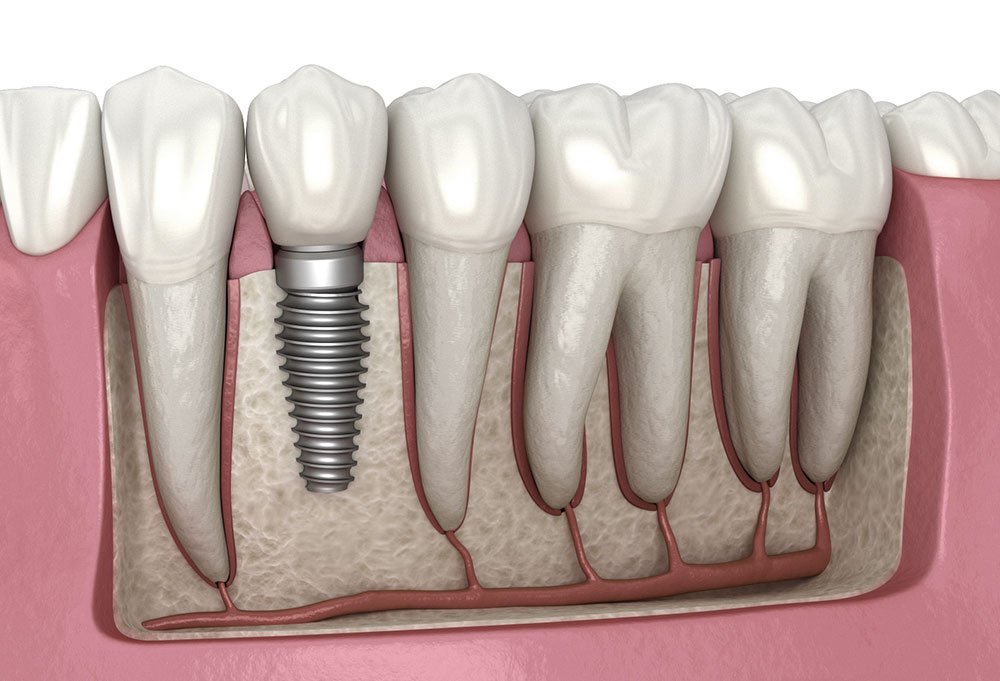When it comes to replacing missing teeth, dental implants and dentures are two popular options. While dentures have been the traditional choice for many, dental implants offer a range of benefits that make them a superior long-term solution for tooth replacement. Here are the top 10 benefits of choosing dental implants over dentures:
1. Superior Stability and Functionality
Dental implants are surgically anchored into the jawbone, which provides a stable and secure foundation similar to natural teeth. Unlike dentures that can slip or shift, implants stay firmly in place, allowing you to chew, speak, and smile with confidence and without worry.
2. Preservation of Jawbone Health
When a tooth is lost, the jawbone underneath can begin to deteriorate due to lack of stimulation. Dental implants act like natural tooth roots, stimulating the bone and preventing bone loss. Dentures, on the other hand, rest on the gums and do not provide this crucial bone stimulation, which can lead to bone shrinkage and changes in facial structure over time.
3. Enhanced Comfort
Because dental implants become part of your jawbone, they feel and function like natural teeth. Dentures can sometimes cause sore spots, irritation, or discomfort, especially if they don’t fit perfectly or if they move around during use. Implants eliminate these common denture-related discomforts.
4. Improved Aesthetics
Dental implants are custom-designed to look like your natural teeth in shape, size, and color. They blend seamlessly with your existing teeth, enhancing your smile naturally. Dentures can sometimes appear artificial or bulky and may cause changes in facial contours if bone loss occurs.
5. No Impact on Adjacent Teeth
Traditional dentures do not impact neighboring teeth because they rest on the gums. However, dental implants also avoid the issues associated with other fixed options like bridges, which require grinding down adjacent teeth. Implants preserve the integrity of surrounding natural teeth, making them a healthier choice for your overall oral structure.
6. Long-Term Durability
With proper care, dental implants can last a lifetime. They are made from highly durable materials such as titanium and ceramic, designed to withstand daily wear and tear. Dentures typically need to be replaced or relined every 5 to 10 years due to wear, fit changes, or damage.
7. Better Eating Experience
Because implants are stable and firmly anchored, they restore nearly full chewing power. This means you can enjoy a wider variety of foods without worrying about your teeth slipping or discomfort. Dentures often limit certain foods, especially sticky or hard items, which can be frustrating for many wearers.
8. Improved Speech
Dentures can sometimes slip or click, causing speech difficulties or a lisp. Dental implants function like natural teeth, allowing for clear, confident speech without the fear of slipping. This can greatly improve social interactions and self-esteem.
9. Convenient Maintenance
Dental implants are cared for just like natural teeth — regular brushing, flossing, and dental check-ups. Dentures require special cleaning solutions, soaking, and careful handling to avoid damage or warping. Implants eliminate the hassle of denture adhesives and daily removal.
10. Boosted Self-Confidence and Quality of Life
The natural look, feel, and function of dental implants help restore your smile and self-esteem. Many patients report improved quality of life, greater comfort, and renewed confidence in social and professional settings. Dentures, by contrast, can sometimes cause embarrassment or discomfort that impacts daily life.
Summary
While dentures remain a more affordable and non-surgical option, dental implants provide superior long-term benefits that enhance oral health, appearance, and function. Choosing dental implants over dentures means investing in a durable, natural-feeling solution that supports your overall well-being and confidence for years to come.




